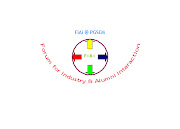The well-known MBAs in the country for people with work experience are those offered by IIM Ahmedabad (one-year PGPX), ISB Hyderabad (one-year executive MBA), IIM Bangalore (three-year part time executive MBA) and XLRI Jamshedpur. There are a host of others, some launched, some in the process of being launched, including ones by IIM Calcutta, IIM Lucknow, and many more.
They all cater to people with work experience. These contrast sharply with the regular MBA programs of most management schools in the country (variously known as the 2-year PGP Program or MBA), where the participants typically have little or no work experience (although there are some notable exceptions among participants of these programs as well).
Before going further, there are many semantic terminologies that prevail, that need to be clarified. Wrongly, MBA specifically tailored for people with work experience is referred to is ‘executive MBA.’ In fact, this is a grave misnomer.
Executive MBA originated in the western world and is meant for people who are working, usually in considerably senior positions, who desire to get an MBA. The basic entry criteria are work experience; desire to do an MBA and ability to pay the requisite fees. In contrast, MBA for people with work experience in IIMA (PGPX), IIMB (PGSEM), etc. are considerably different in that they have stringent entry criteria (CAT/GMAT, elaborate application process, interviews,
etc.) In the following I would like to restrict my comments to contrasting PGSEM with other MBA programs for experienced persons, taking IIMA’s PGPX as a specific case in point.
My own personal view is that the content of an MBA program being largely oriented towards management practice, the best learning can be had in the program only if one has spent several years in the industry, and seen at close quarters the functioning of organizations. In fact that is one reason why top schools in the world typically admit only participants with some years of
experience into their regular MBA programs.
My own once again personal experience as a teacher at both IIM Bangalore and at IIM Ahmedabad, where I teach in various long-term programs (PGP, PGSEM, PGPX, PGPP) has been that it is much more fulfilling to teach a class wherein all the participants have several years of experience. Thus my most rewarding classes as a teacher are those in PGSEM and PGPX. Participants in these programs have made a very conscious choice to join the program, often having to make many adjustments to juggle their many commitments. This makes them much more motivated learners. They also have a great deal of ability at multi-tasking acquired
through many years of industry experience, often juggling obligations at work, home, and their MBA education. Willy-nilly, they are excellent time managers. As a case teacher that I am, I find the classroom discussions in these programs much more stimulating, and many issues that I may not have thought of earlier, routinely surface during the classroom discussions. These are the truly ‘WOW!’ moments of fulfillment for a teacher, because there is a great deal of element of surprise in the process. The typical class attendance in these programs in my experience is
100%, and the preparation for class is also generally very high.
Since in some sense, I have had the unique opportunity of teaching extensively in both PGSEM (at IIM Bangalore) and PGPX (at IIM Ahmedabad) for the last two years, I cannot but admire the tenacity of the participants in both these programs.
While the PGSEM is a part time program, the pressures are enormous on the participants, many of who are 3 to 7 years into their careers in the intensely competitive software industry, with its uncompromising deadlines, etc. Often many participants straddle different continents, time zones, etc., all as part of a week’s work. The PGSEM folks in both Bangalore and now Chennai (through the distance education classes) have to additionally reckon with long hours on the road just to attend classes. The fact that the program is spread out over ten terms of ten
weeks each (spanning about 3 years) may perhaps allow good assimilation of the various subjects. In contrast, the PGPX participants have let go of their jobs, and often shift with families for a one year ‘boot camp’ at IIM Ahmedabad, where the whole program is packed into about 11 months, including a few weeks of foreign immersion. The PGPX grind is severe, and participants in this program without doubt, are perpetually sleep-starved for the entire duration of the program. I would imagine that the same situation prevails for folks at ISB and elsewhere, in oneyear MBA programs targeted for people with significant work experience. For them however the silver lining is the placement process that awaits them at the end of the grueling year, a great incentive and icing that does not exist for PGSEM. I only hope that the placement factor of PGPX does not over the years eat into the spirit of learning which is what at least till date distinguish the MBA programs for people with work experience from the regular two-year MBA programs.
Since the participants in both these programs (PGPX and PGSEM) have a lot of work experience, my experience has been that the uptake of ideas and concepts is much faster and more permanent vis-à-vis participants of regular MBA 2-year programs. I must qualify this observation with the disclaimer that this may be subject-specific. Another intriguing aspect is that a multiplicity of dimensions come into the classroom discussions, and in this sense, each case gets discussed from an inter-disciplinary perspective. For a case teacher the challenge of
conducting a case discussion for this forum can be daunting, since among participants, it is not uncommon to find a country marketing manager of a large FMCG company, or bank, etc. Participants of both programs are always red-eyed, although the reasons are different. For PGSEM, it is juggling work and study. For PGPX, it is due to almost inhuman compression of learning. The compression is further exacerbated with up to ten courses in a term, and scheduling complexities, that result in considerable skewing of work loads across each term. The average work experience in PGPX is considerably more (10 years) vis-à-vis about five for
PGSEM. However the two worlds converge very closely. I often have a PGPX student in Ahmedabad wanting to know if I came across his former colleague in XYZ Company, where the two worked very closely till last year!
The value addition to participants of both PGSEM and PGPX (or the ISB version) should be more or less similar from my perspective. Given the spread of 10 terms, thus facilitating better assimilation in the case of PGSEM, my suspicion is that on this count, PGSEM folks are somewhat better placed (For participants of the one year executive MBA programs, it is a hurricane of courses and one class after another, sometimes as many as eight sessions a day!)
A few other differences: Scope for team work / group projects (which is so essential in management education) is very limited in PGSEM as the participants split soon after class into their own worlds and only meet again the following week for their classes. In contrast, PGPX participants are intensely immersed into their management education for the period of study, cutting off all other distractions during the period of ‘sadhana.’ This creates an atmosphere wherein participants can be very focused on learning. The campus atmosphere and pedagogy deployed provide excellent opportunity for team work and for building life-long relationships with their fellow participants. Perhaps this ‘immersion’ and focus, more than compensates for the heavy-intensity bombardment of cases, concepts and courses that they have to reckon with.
In fact, my guess is that networking is a very essential take-away in any MBA program. That may be very limited in the case of PGSEM since the relationships are essentially ‘transactional.’ The structure of the program does not leave scope, bandwidth or energy for group work, relationship-building, etc., as participants are essentially fighting many simultaneous fires on many fronts. This may also explain why student solidarity and alumni movement in PGSEM is very weak or non-existent, something I will address in more detail towards the end of this writeup.
The participants of the MBA program for people with work experience have a clear advantage in that they have access to placements through their institutes.
Their institutes leave no stone unturned for brand-building these programs. This enables their investment in the program (time, money and effort) to be a booster rocket for higher trajectory careers. However, PGSEM by its very structure does not facilitate this, as there are inter-organizational relationship issues to be reckoned with.
While a PGPXer with prior software industry work experience has the opportunity of migrating out of the software industry into any other industry if s/he so chooses, PGSEMites may not have such flexibility. Awareness about PGSEM in the society at large, Indian industry in general, the software industry and perhaps within the employing organizations is still abysmally low. I have heard some of my PGSEM student alumni complain: “When I tell some senior managers in my company that I have completed PGSEM, they ask whether it is one of those
‘Reliance Web World type programs’.” When I meet a lot of my ex-students from PGSEM, they complain that their organization has not given value to their MBA qualification, and that they are essentially doing the same thing as what their other non-MBA colleagues are doing. Alas! The stratospheric salaries that make rounds in the context of discussions relating to PGP and PGPX graduates are no where in sight. With the growing numbers of one-year MBA programs that are tailored for people with work experience in the country, sooner or later, this issue of disparity will begin to bother the PGSEM graduates (I see that already happening now), and
a creative solution would be needed. This would need the meeting of minds and hearts of the institute, the participants and the organizations they work in. Brandbuilding of the PGSEM program is an urgent need of the hour.
I also suspect that the PGSEM program being non-residential and part time, the degree of competition for grades once into the program, is considerably less than the PGPX program where every one knows where they stack up against the rest of the class, as they run into each other all the time. This might have an important implication on learning. When competition is minimal, the efficacy of learning is purely dependent of voluntary exertions of the individual participants. However when competitive forces are unleashed, one is pushed to ‘catch up with the Joneses’ just to stay afloat, which may nudge even the more easy-going folks to
exert themselves. However, from a philosophic perspective, whether or not
competition aids or hinders learning is a moot issue.
A final important aspect that must be addressed is that the networking among PGSEM participants, alumni, etc. is much weaker compared to what one finds with the other one-year MBA programs for people with work experience. Developing a stronger alumni network and student representation body of PGSEMites may be the first step to address some of the ironies discussed above that are only likely to get further accentuated in the years to come. Given the
already stretched lives that PGSEMites (both present participants and alumni) lead, this enhanced level of alumni and student body activity may be a tall order, but nevertheless needed. Who will bell the cat?
By:Prof. SheshadriFirst published in the Oct'2007 PGSEM newsletter!!




